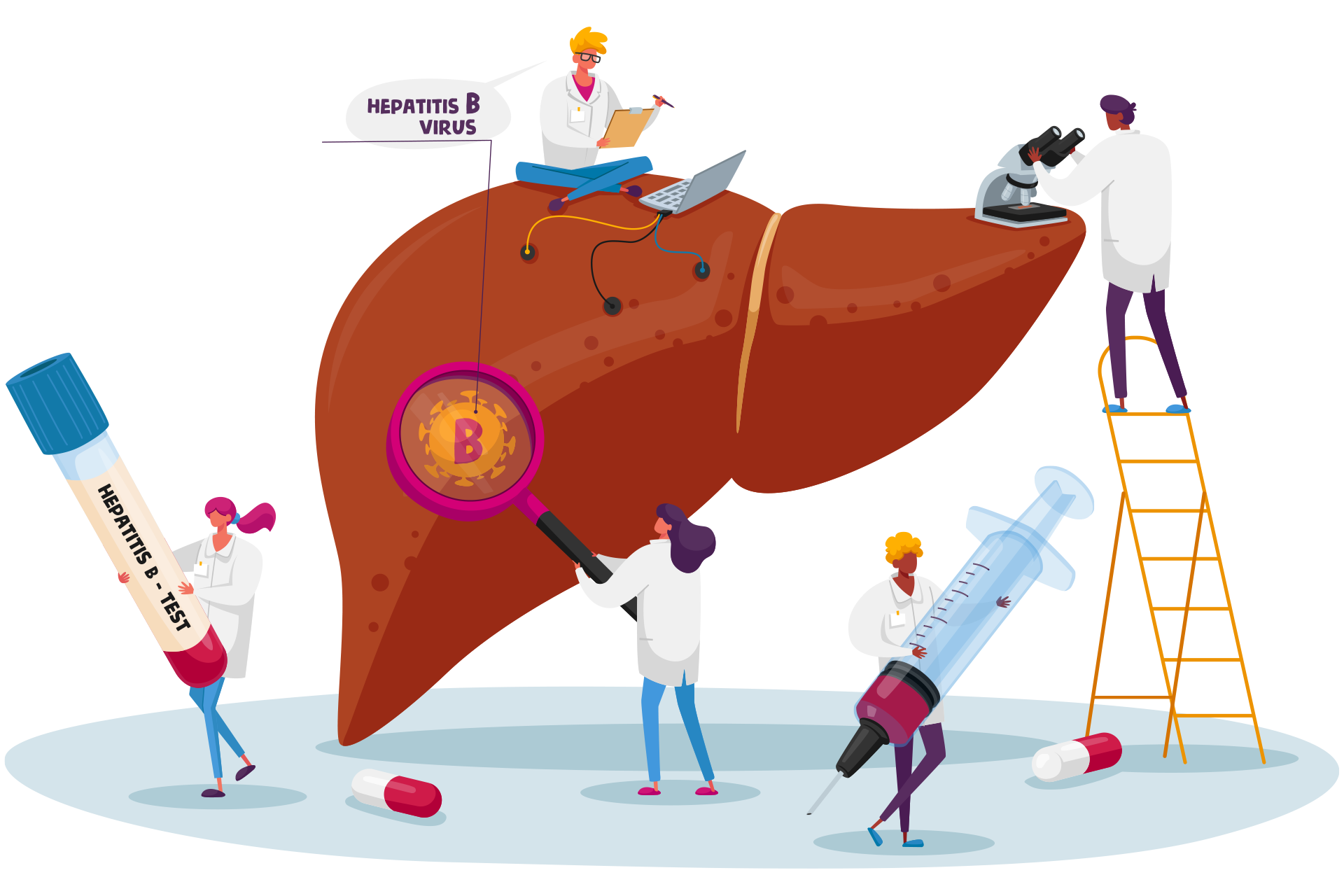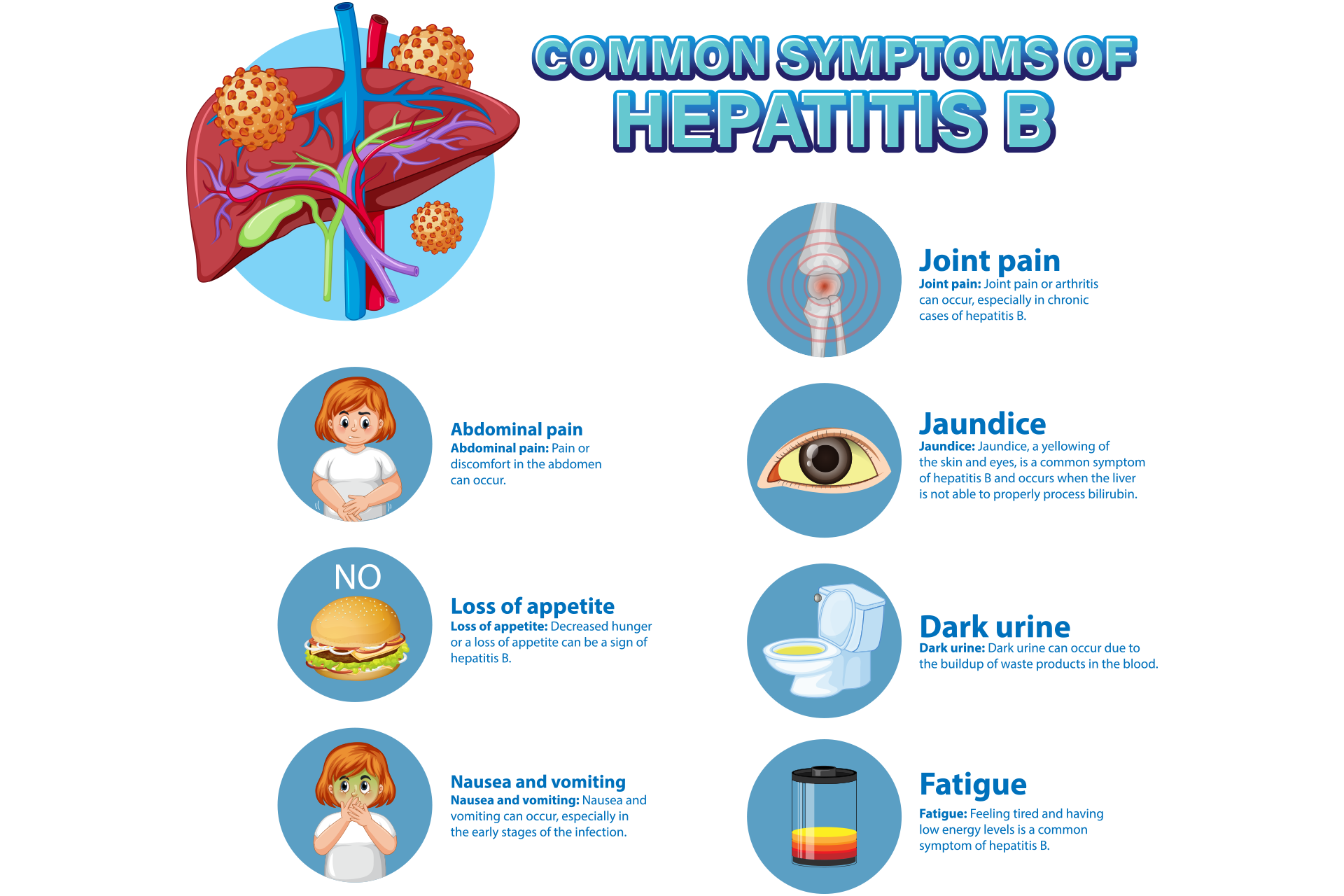From July 22 to 28, we observe Hepatitis Awareness Week, a critical time when the community comes together to amplify the voices of those affected by hepatitis. This disease can significantly impact individuals and families, causing serious health problems and economic burdens. This week is also an opportunity to celebrate the remarkable advancements in medicine that have improved the outcomes of hepatitis treatment and to reflect on the work that still needs to be done to eradicate the disease.
Understanding Hepatitis and Its Impact on the Liver
The liver is one of the body’s most vital organs responsible for processing nutrients, filtering the blood, and combating infections. Hepatitis, an inflammation of the liver, can significantly damage these functions. While heavy alcohol consumption, exposure to toxins, certain medications, and specific medical conditions can lead to hepatitis, the most common cause is a viral infection.
There are five primary types of viral hepatitis: A, B, C, D, and E. The last two, D and E types, are less common in the United States, but hepatitis B and C are prevalent. Approximately 1.2 million Americans live with hepatitis B, and up to 3.9 million are affected by hepatitis C. Recently, several states have reported outbreaks of hepatitis A, highlighting the ongoing need for vigilance and prevention.
Symptoms to Watch For?
One of the challenges in managing hepatitis is that patients may not always experience symptoms, making the infection difficult to detect early. However, symptoms can appear in acute cases from two weeks to six months after exposure. These symptoms include:
Treatment Options for Hepatitis
Vaccines are available for hepatitis A and B, providing a powerful tool for prevention. Although there is no actual vaccine for hepatitis C, antiviral medications can cure most infections. Given the highly contagious nature of hepatitis C and the often delayed onset of symptoms, widespread testing is highly recommended to ensure early detection and treatment.
Thanks to next-generation medications, eliminating hepatitis C is now an achievable goal. However, this requires the combined efforts of the government, the health sector, and the community, including healthcare professionals and social organizations, to be fully realized.
Hepatitis Can’t Wait
July 28 marks World Hepatitis Day, a global observance that serves as a forum for ill patients and disease communities around the world to raise awareness about hepatitis and advocate for increased access to testing and treatment. This year’s motto, ‘Hepatitis Can’t Wait,’ emphasizes the urgency of ongoing improvements in immediate testing and diagnosis, timely access to treatment, and prevention through vaccination.
Around the world, many influential actors are pushing for transformative changes in patient’s lives and environments, and their efforts deserve recognition and support. By participating in World Hepatitis Day activities, you can help promote awareness about the disease and contribute to global actions to eliminate it.
How to Participate in Hepatitis Awareness Week
During Hepatitis Awareness Week, there are several ways to get involved and make a difference:
Addressing Non-Viral Hepatitis
While much of the focus is on viral hepatitis types, it is crucial to acknowledge non-viral causes of hepatitis as well. Non-viral hepatitis refers to liver inflammation that is not caused by a virus. Several factors, including heavy alcohol use, exposure to certain toxins, and the use of specific medications, can cause it. Public awareness campaigns should include information about these non-viral hepatitis causes to ensure a comprehensive understanding of liver health and to encourage individuals to make better lifestyle choices that can reduce their risk of developing hepatitis.
The Future of Hepatitis Treatment
The advancements in hepatitis treatment over recent years have been groundbreaking. The introduction of highly effective, easy-to-take medications has transformed the prognosis for hepatitis C patients. That’s why the elimination of hepatitis C is now a realistic goal, powered by a necessary collaboration among governments, healthcare providers, and communities.
Advocacy efforts and ongoing research are focused on improving access to testing and treatment, developing new vaccines and medications, and raising awareness about the disease. By supporting these efforts, you can be helpful in moving closer to a future free of hepatitis.
As we approach World Hepatitis Day on July 28, let us remember the importance of not waiting:
Together, we can work towards a future free of hepatitis, where every person can live a healthy, fulfilling life. This future is not just a dream but a realistic goal we can achieve collectively.
Call Signature 24/7 at 1 (800) 277-8291 for excellence in skilled and compassionate home health care.

Your Complete Home Health Care Solution!
ALWAYS ON CALL
| Monday – Sunday | 24 / 7 |
1 (800) 277-8291 (option 1)
COUNTIES SERVED
OUR VALUES
TESTIMONIALS

I love all of my home health people.

All Signature staff as well as therapy were very helpful.

Their services have always been great.

I really love my physical therapist. Gary has helped me so much.

This has been one of the best agencies. Very caring nurses.

I’ve had a really good physical therapist and really nice nurses.

I have had excellent care & would recommended them to anyone.

Gary Dixon is the very best physical therapist in Baytown and Houston Area.



